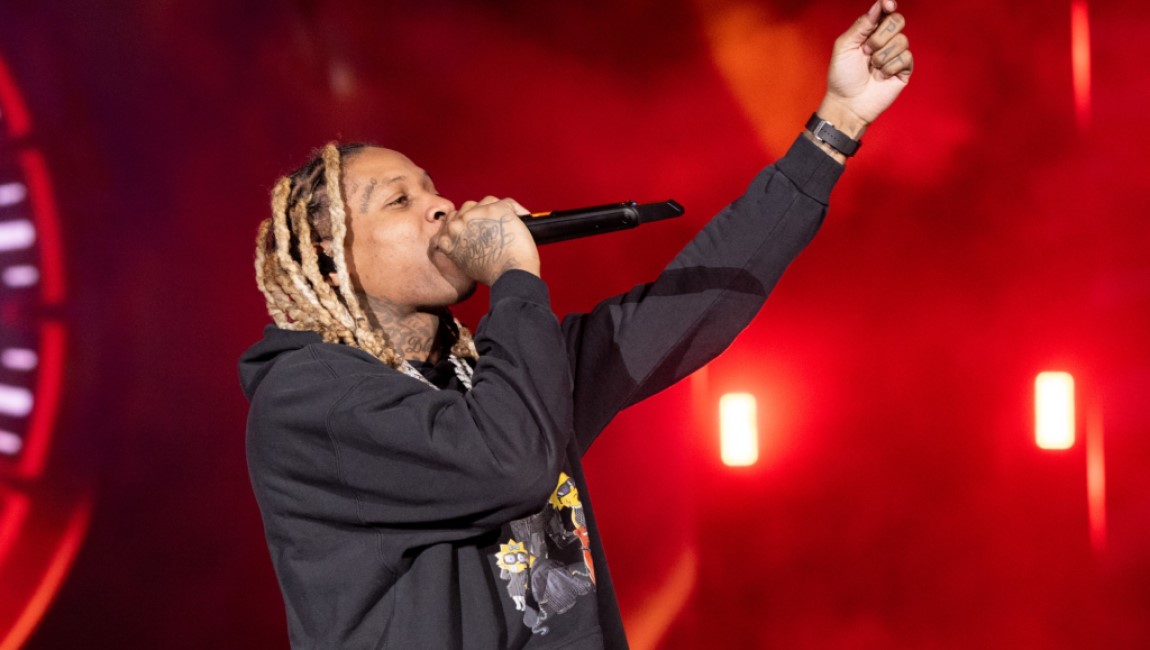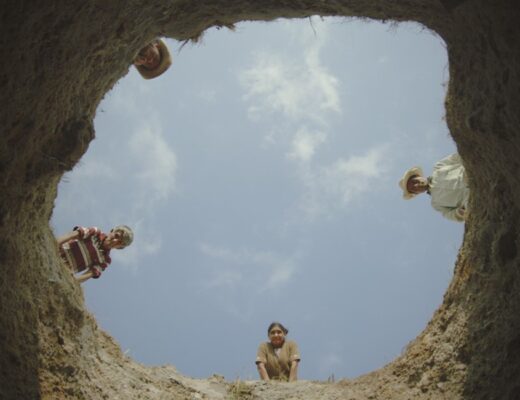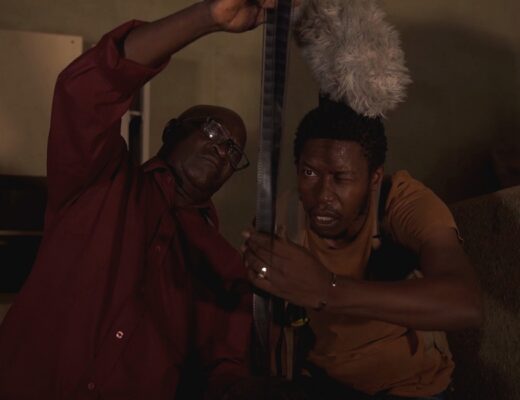Lil Durk
To say that Lil Durk had a big 2021 would be something of an understatement. In actuality, the year was a pretty momentous one for the Chicago rapper, where his consistent work ethic would finally pay off with a slew of high-profile guest spots (if you don’t shed a tear after his verse on “Jonah,” you simply have no soul) and his first number one album, albeit a collaborative one with an MC who’s slightly hotter than he is at the moment. 7220, then, is Durk’s first big solo moment since his career resurgence, and he’s doing everything in his power to capitalize on it; the album is so absurdly mainstream that there’s a (completely forced) Morgan Wallen collaboration to help get the point across. There are also a few viral instances sprinkled across for added pertinence — “What Happened to Virgil,” which should be a solemn moment of reflection, is turned into a quick joke with the ridiculous way Durk delivers the bridge; Future somehow continues to be the king of online toxicity with lines like “I knew she was a freak, she grew up in a church/These hoes poppin’ Plan B’s like they Percs” — and tracks that continue to instigate real-life drama (“AHHH HA” is reckless, but undeniably exciting; same goes for “Pissed Me Off” and the newly added “Computer Murderers”), all in service of boosting a profile that’s already ascended past household name status. You gotta hand it to Durkio: when he sees a golden opportunity, he doesn’t let it pass him by; he even christens himself the “Golden Child” on a track with the same namesake.
However, if one is willing to listen in good faith — and ultimately takes with a major grain of salt that this is a major label product with a lotta gooey, flabby sections aiming for some crossover appeal — they’ll be able to recognize that Durk’s an extremely talented melodic performer and an equally accomplished writer, even while he’s indulging some more carnal desires and behaviors throughout (“Blocklist” has him begging his ex not to block him after divulging his body count, because, deep down inside, he still loves her… ok?). After all, it’s easy to be distracted by entire songs centered around his status and material possessions when the purest instances of Durk’s humanity are always so fleeting: “I still cry to my mama like a lil’ baby, but I’m a big dog,” he admits on “Headtaps,” with zero shame. On “No Interviews,” he proudly co-signs Pooh Shiesty and honors the fallen Juice Wrld; a few bars later, he’s gassing up Kodak Black’s “Super Gremlin.” “Smoking & Thinking” sees Durk both (supposedly) smoking and (definitely) thinking: about his children, his life, those who’ve betrayed him. While 7220 operates as a grand package of everything that encompasses its central artist’s strengths, the particulars in Durk’s songs are oftentimes more compelling than the grand whole, which renders the spectacle something of an empty gesture. But again, if one can look past the blatant theatrics, there’s still a tangible emotionalism at the core of Durk’s music, a quality that makes it worthwhile even in this imperfect form.
Writer: Paul Attard Section: What Would Meek Do?
Ho99o9
Committed to the bit for a whole decade at this point, though really only publicly known for seven or eight of those years, Ho99o9 make a short-awaited return with their second studio album Skin, the punk/horrorcore trio having last released mixtape Turf Talk Vol. 1 in June of last year. And before that there was another mixtape and 2 EPs, cranked out in between 2018 and 2021, with previous album United States of Horror bookending this prodigious run. An abundant output characteristic of the genre perhaps, but this unrelenting release pace hasn’t done the group many favors, with each project sort of bleeding into the next, not particularly distinctive from one another. Devoted to an enticing aesthetic that sits somewhere at the intersection of hardcore and rap, and occasionally veering into straight-up nu metal/rap-rock, Ho99o9’s genre synthesis is mostly slick but not particularly deep, closer in concept to a revivalist act than anything else, their music translating nicely to a hyped live show that’s earned them opening slots with borderline legacy acts like Prophets of Rage and Alice in Chains.
In line with all this, Skin finds Ho99o9 comfortable, back in their lane with their most high-profile album yet. A streamlined effort in contrast to the unwieldy, 17-track United States of Horror, Skin reads as a more conscious bid for broader credibility, a logical play in a moment where a number of the group’s aesthetic touchstones have been worked by other artists to winning effect (JPEGMAFIA, Sematary, etc.) Recruiting a faux-eclectic guest roster that includes Slipknot’s Corey Taylor and Underground King Bun B, much of the album feels consciously designed in this manner, an elevator pitch on behalf of Ho99o9 outlining their influences and skill set. That’s not to say that these songs are inauthentic or lacking in energy or enthusiasm, but that their pleasures are surface level and fleeting — Skin, as has been the case with previous releases, is an album without too many ideas outside genre synthesis. At their best (something like mid-album cut “PROTECT MY BITCH PT. 2”), Ho99o9 can coast off the simple pleasures of blown-out bass and rudimentary drum machine rhythm, making effective enough Big Black homage, but even a slight veer away (the Saul Williams-featuring, spoken-word-centric “SKINHEAD”) tends to throw off Skin’s pacing. A fun enough project, Skin is also, unfortunately, exemplary of Ho99o9’s inability to think bigger, mostly working as a refinement of the stylings they’ve indulged in for some time now without pushing further forward.
Writer: M.G. Mailloux Section: Ledger Line
Dolly Parton
When considering a “companion album,” most are likely to think of a compilation to some sort of visual media, something like the hit soundtracks released for The Hunger Games or Twilight films, a record where not all the tracks are necessarily incorporated, but inspired by the story and characters therein. We see this far more rarely with written media; a few authors, such as Jodi Picoult, have embarked on similar projects and included CDs and audio media with the paperback itself, but these projects haven’t tended to draw big names, and oftentimes feel like a demo reel rather than an actual album. That is not the case with Run, Rose, Run, a full album by Dolly Parton that compliments a book of the same name co-authored by her and James Patterson. And honestly, it’s a little surprising that Patterson hasn’t undertaken this kind of tie-in media before, seeing as he’s checked off nearly everything else in the publishing world. But perhaps that was for the best, as he’s here lucked out in collaborating with Dolly, who has created a work which can stand alone from the novel while also reflecting it nicely. (It’s worth noting that all songs on this record are written by Parton herself; she was a partner on the novel, but the assist was not returned, probably for the best.)
Run, Rose, Run is clearly the work of someone who’s been in the biz for a while. Parton, as always, brings an infectious energy to her songs. She hits the ground running with the uptempo opening track, aptly titled “Run” — it fast becomes the kind of singalong number that would make for the perfect opener at a show. Second track “Big Dreams and Faded Jeans” offers a great vehicle for Parton’s charisma; both are “always bustin’ at the seams,” which is the classic kind of winking you’d expect from her songwriting. Elsewhere, the record’s two best songs appear back-to-back, stacking with deeply different vibes. “Blue Bonnet Breeze” is a spooky little story about a Romeo-and-Juliet love story that ends in heartbreak and death, a cut that stands sturdy on its own. It’s immediately followed by “Woman Up (And Take It Like a Man),” which feels like an homage to girl-power country of the ‘90s as well as to Dolly’s own “9 to 5.” It admittedly falls a bit into the #girlboss category, but if anyone deserves a pass for that particular mode, it’s Miss Parton herself.
There are also some mediocre moments on the record, mostly a byproduct of overly repetitive lyrics; count the number of times you hear references to “Run,” “Demons,” or “Firecracker” — which are all also track titles — and it can drive you a little nuts. And then there’s “Snakes in the Grass,” which is too obvious in its central metaphor, although hearing Dolly and her gang whisper “watch your ass” at the very end is an unimpeachable album highlight. Likewise, some of the slower songs here, such as “Secrets,” drag; not even Dolly’s charm can make those three minutes interesting. But any way you shake it, album warts and all, Run, Rose, Run is a much better record than you’d expect from material inspired by a James Patterson book (which this will assuredly be better than), and speaks to Parton’s skill as a performer and songwriter. The album may not be a string of hits, but it’s certainly worth checking out for the littered highlights.
Writer:Alex Clifton Section: Rooted & Restless
DaBaby & YoungBoy NBA
The title of DaBaby and YoungBoy Never Broke Again’s recent collaborative mixtape is an unsurprisingly (given the talent involved) hubristic assertion: you see, the duo are Better than You, which implies that their overall eminence extends beyond the parameters of rap and into basic human virtue — which, considering their long and storied rep sheets, is a bit of a stretch. But taken at face value, it’s a typical school-yard jaunt one could expect from the two biggest and most popular WWE Supervillains/cartoon characters in hip-hop; alternative titles probably included You’re A Loser and Na Na Na Boo Boo. But engaging in empty provocation is their specialty, which should establish some thematic common ground, or at the very least, provide a consistent throughline. Unarguably, they both have their own strengths by which they have every right to brag about: after all, YoungBoy can rack up YouTube views faster than the vast majority of label artists; DaBaby, on the other hand, is certainly better at shooting people at Walmart than just about any average Joe walking the street. The results are, regrettably, nowhere near this confrontational; if anything, the only thing they prove with this endeavor is that they’re “better” at continuously releasing mid-tier music than most.
Well, that’s not totally true: while YoungBoy continuously experiments with various degrees of success, DaBaby is perfectly content with doing the exact same thing he’s been doing for two years straight now. Lead single “Hit” — which was originally a two-parter with “Bestie,” now split up in reverse order to turn the project into a Möbius strip of sorts — plays out as you’d imagine based on these descriptors: the clear Playboi Carti-knockoff beat starts rattling off as DaBaby starts going through the motions, playing the victim whilst simultaneously being the aggressor (“Shut up, I know you don’t love me”), to then be saved by an animated YoungBoy — who’s also clearly doing his best Playboi impersonation, staccato flow and all — who sounds outright demonic as he squeals out “I got the baddest ratchet bitch that’s dancin’ all on my dick.” He gets equally weird with his vocals on “Syracuse,” pitching his voice even higher to shriek out the unsettled chorus — “Glizzy, glizzy, show ’em what that Draco do / She wan’ Xanax too, plus that drank from Syracuse” — while, once again, DaBaby does the bare minimum required with the limited space he’s provided. Which, admittedly, isn’t a whole lot of material to work with: there’s a general assortment of songs that sound like they were made in mind for DaBaby only (“WiFI” and “BBL”) and those that could be argued for YoungBoy (“On this Line” and “Creeper”). There’s even one or two that sound like they were passed on by other rappers (“Turbo” is the hyper-pop anthem nobody wanted and/or needed from these two). Combined together, the outcome is decidedly mixed/slightly skewed in YoungBoy’s favor, but it’s overall so low-stakes that it really doesn’t matter that much in the grand scheme of things — which makes DaBaby’s claims that Better than You is this generation’s Watch the Throne, much like his many failed attempts at trying to prove he’s not homophobic, even funnier.
Writer: Paul Attard Section: What Would Meek Do?







